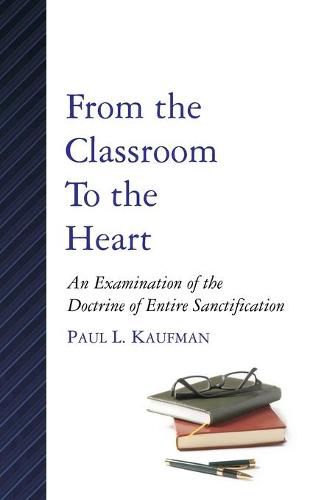Readings Newsletter
Become a Readings Member to make your shopping experience even easier.
Sign in or sign up for free!
You’re not far away from qualifying for FREE standard shipping within Australia
You’ve qualified for FREE standard shipping within Australia
The cart is loading…






For several decades the author has taught college courses on theology. He has found that students reared in Wesleyan churches show confusion as to what constitutes a sin, carnal trait or temptation, and labor under the erroneous idea that somehow John Wesley invented the teachings of Christian perfection. He first provides a historical overview of the various streams of religious teachings that shaped the theology of Wesley from the ancient Church Fathers up to his own time. Then he addresses some of the erroneous views of sin that are circulating in contemporary preaching and teaching. He considers sins of ignorance and ethical decision-making before dealing with the differences between the two works of grace. He examines common carnal traits of the unsanctified and provides some instruction and illustrations to help readers deal with them. Employing First Thessalonians he directs the reader’s attention to biblical examples of the two steps involved in the process of entire sanctification. Along the way he considers aspects that trouble believers: how competition and legitimate feelings of accomplishment might affect one’s walk with the Lord and influence with others; the various fillings of the Holy Spirit that appear in both the Old and New Testaments, using Samson as an illustration; the three different kinds of fillings by the Spirit in Scripture; the various degrees of perfection found throughout Scripture; emotions and feelings and the critical role they play in one’s spiritual life; the road to maturity; current misconceptions about entire sanctification; what perfect love won’t and will do; what actually transpired in the Upper Room at Pentecost, the events at Samaria and the house of Cornelius- all these important topics are analyzed and discussed. The book ends with specific counsel on how the child of God can find wonderful deliverance from the carnal mind.
$9.00 standard shipping within Australia
FREE standard shipping within Australia for orders over $100.00
Express & International shipping calculated at checkout
For several decades the author has taught college courses on theology. He has found that students reared in Wesleyan churches show confusion as to what constitutes a sin, carnal trait or temptation, and labor under the erroneous idea that somehow John Wesley invented the teachings of Christian perfection. He first provides a historical overview of the various streams of religious teachings that shaped the theology of Wesley from the ancient Church Fathers up to his own time. Then he addresses some of the erroneous views of sin that are circulating in contemporary preaching and teaching. He considers sins of ignorance and ethical decision-making before dealing with the differences between the two works of grace. He examines common carnal traits of the unsanctified and provides some instruction and illustrations to help readers deal with them. Employing First Thessalonians he directs the reader’s attention to biblical examples of the two steps involved in the process of entire sanctification. Along the way he considers aspects that trouble believers: how competition and legitimate feelings of accomplishment might affect one’s walk with the Lord and influence with others; the various fillings of the Holy Spirit that appear in both the Old and New Testaments, using Samson as an illustration; the three different kinds of fillings by the Spirit in Scripture; the various degrees of perfection found throughout Scripture; emotions and feelings and the critical role they play in one’s spiritual life; the road to maturity; current misconceptions about entire sanctification; what perfect love won’t and will do; what actually transpired in the Upper Room at Pentecost, the events at Samaria and the house of Cornelius- all these important topics are analyzed and discussed. The book ends with specific counsel on how the child of God can find wonderful deliverance from the carnal mind.